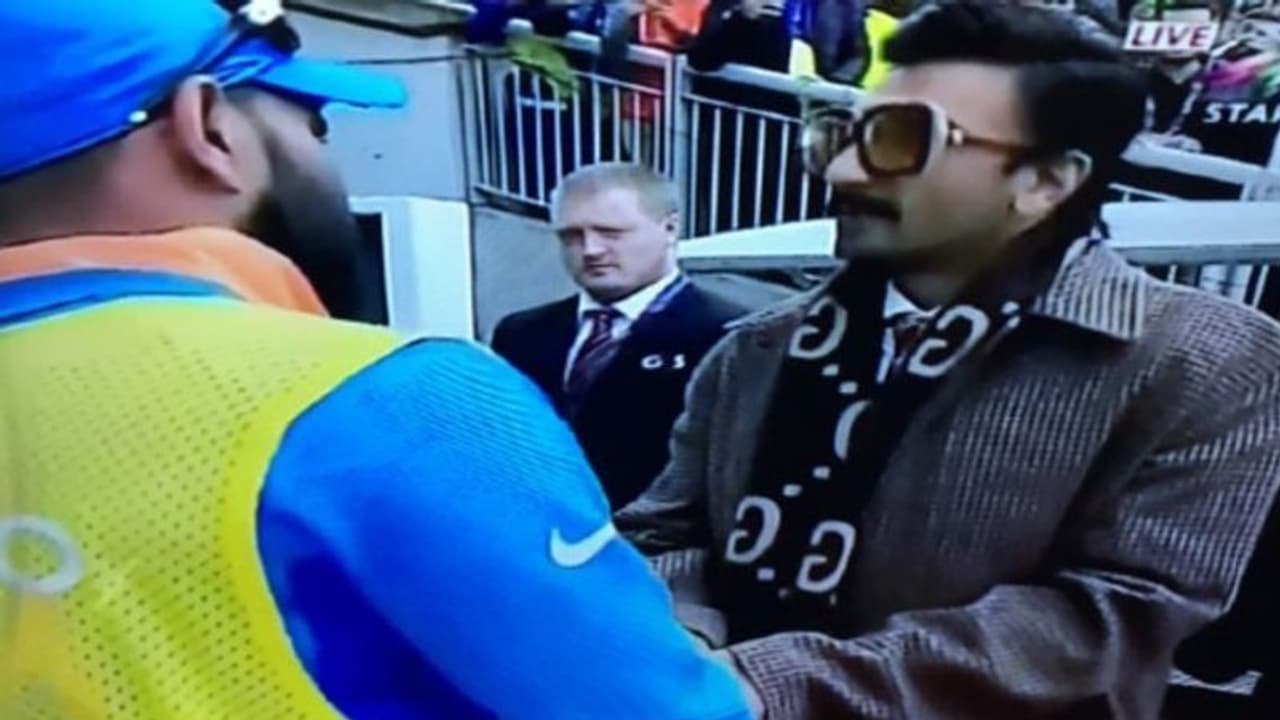After the pictures were beamed on TV screens of Mohammed Shami and Ranveer Singh’s meeting during India-Pakistan World Cup 2019 match, several Twitter users wondered whether the Indian bowler had violated ICC’s Anti-Corruption Code
Manchester: After India had posted 336/5 against Pakistan in their ICC World Cup 2019 on Sunday (June 16), there were live TV pictures of fast bowler Mohammed Shami talking to Bollywood actor Ranveer Singh near the boundary.
Shami, who was not part of the match at Old Trafford, was chatting with Ranveer, who is in England for the shooting of his movie ’83, which is based on India’s 1983 World Cup win.
Also read: Virat Kohli walks despite not edging ball
After the pictures were beamed on TV screens of Shami and Ranveer’s meeting, several Twitter users wondered whether the Indian bowler had violated ICC’s Anti-Corruption Code.
The meeting place between Shami and Ranveer falls under the PMOA (Players’ and Match Officials’ Area) where outsiders are barred from entering. PMOAs including dressing rooms, dug-outs, dining area of players, match-viewing areas, operational rooms used by umpires, and others.
Also read: Bhuvneshwar Kumar out of Pakistan match
Ranveer entered the PMOA as he is part of the Star Sports commentary team. So, Shami may not have broken any rules. Earlier, the official Twitter page of the Board of Control for Cricket in India (BCCI) had tweeted pictures of Ranveer on the ground before the start of India-Pakistan match.
Ranveer may have also secured ‘temporary visitor’ pass to PMOA, under the ICC rules.
Here is what ICC’s 'Minimum Standards for Players’ and Match Officials’ Areas at International Matches’ state
3.1.2 In certain circumstances, temporary ‘visitor’ accreditation may also need to be issued by the ICC Anti-Corruption Manager to any other individuals who may need access to the PMOA from time to time for operational reasons, including, for example, ICC and National Cricket Federation staff and members of the venue’s security, cleaning or catering staff. Such temporary accreditation can only be provided by the ICC Anti-Corruption Manager, who may impose such conditions on the accreditation (including for specific time periods or areas etc) as he/she deems appropriate in the circumstances.
3.1.3 For the avoidance of doubt, and except as described in Article 3.2, below, no individual, irrespective of their identity, job, role or responsibility, will be allowed to enter, or remain within, the PMOA without displaying an official accreditation pass.
3.3 Temporary ‘visitors’ to the PMOA:
3.3.1 All temporary visitors must display their PMOA temporary ‘visitor’ accreditation passes whenever they enter or leave the PMOA.
3.3.2 All temporary visitors must carry their PMOA temporary ‘visitor’ accreditation passes at all times whilst they remain within the PMOA.
